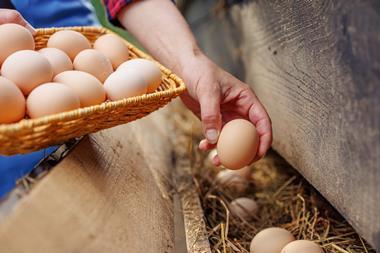Action on Sugar (AOS) has lambasted the government over its “weak obesity strategy”, describing it as “appalling” that no further action to improve the strategy has been taken since the leaked report a few weeks ago.
Revealing its latest move on obesity, the government has launched a consultation on the sugary drinks levy, following former chancellor George Osborne’s plan to introduce the tax in April 2018.
And it has set voluntary sugar reduction targets for the industry with a goal of achieving a 20% reduction in sugar in products popular with children by 2020. This, it says, will be targeted via a combination of reformulation and smaller portions, with progress monitored by Public Health England (PHE). It said that PHE would set sugar targets per 100g and calorie caps for certain products.
However, Action on Sugar is now calling on Prime Minister Theresa May to rescue the strategy and ensure that the Sugary Drinks Industry Levy consultation results in the implementation of an effective strategy.
In a statement AOS said: “The failed Responsibility Deal has already proved that voluntary measures do not work. Given the shockingly high levels of obesity and type 2 diabetes and the enormous impact on the NHS, we no longer have the time or luxury to merely ‘challenge’ the industry to take responsibility. This is an unforgivable missed opportunity to launch what should have been one of the UK’s most important public health programmes.”
Professor Graham MacGregor, chairman of Action on Sugar and Consensus Action on Salt and Health (CASH) added: “After the farce of the Responsibility Deal, where Andrew Lansley made the food industry responsible for policing themselves, it is sad to see that this is just another imitation of the same Responsibility Deal take two. It is an insulting response to the UK crisis in obesity type 2 diabetes, both in children and adults.”
However, speaking on behalf of the industry, Food and Drink Federation director general Ian Wright said: "Food and drink manufacturers recognise our responsibility in meeting the challenges posed by obesity. Government has acknowledged that working in partnership with industry on a voluntary basis is the best way to make progress on this crucial issue. We are committed to that partnership.
"The proposed tax on soft drinks is a disappointing diversion from effective measures to tackle obesity. Soft drinks companies are already making great progress to reduce sugars from their products, having achieved a 16% reduction between 2012 and 2016. However, the target set for sugars reduction in the plan is flawed. It focuses too strongly on the role of this single nutrient, when obesity is caused by excess calories from any nutrient. Moreover the target is unlikely to be technically practical across all the selected food categories."
He added: "Reformulation is difficult and costly: there are different challenges for each product and recipe change can only proceed at a pace dictated by consumers. We will do everything we can in the next six months to work towards a practicable reformulation solution, while continuing to urge the government to adopt a ’whole diet’ approach."
In July, AOS criticised a leaked copy of the Childhood Obesity Strategy, saying it did not go far enough.
































No comments yet